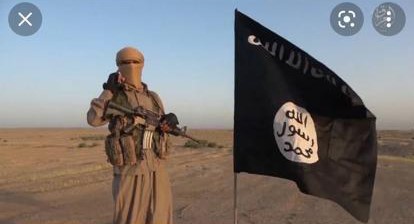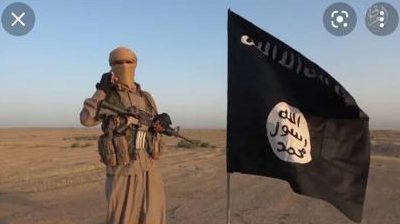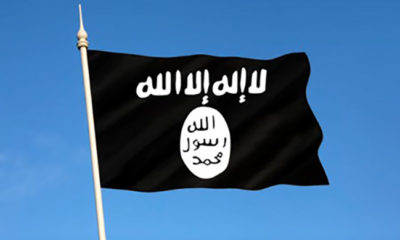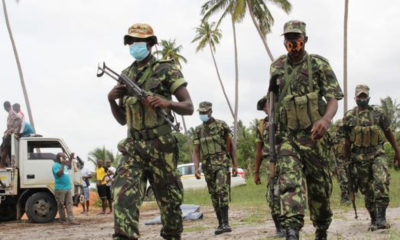
News

US authorities identify four ISIS ‘financial facilitators’ in SA
Four men living in South Africa have been identified by the United States (US) as allegedly being involved in terrorist activities across the country and on the wider African continent.
The four have been sanctioned (blocked from doing business in the US) by the US government for their alleged links to recruitment, kidnapping, extortion, and robberies committed to assist terrorist organisations financially.
This week, the US treasury department’s Office of Foreign Assets Control (OFAC) identified these men as Islamic State of Iraq and Syria (ISIS) and ISIS-Mozambique (ISIS-M) “financial facilitators”.
They have been red flagged as using South Africa’s financial system to fundraise and facilitate funding for ISIS networks, according to OFAC.
ISIS members and associates in South Africa are “playing an increasingly central role” in facilitating the transfer of funds from the top of the ISIS hierarchy to branches across Africa, said OFAC on Tuesday, 1 March.
Professor Hussein Solomon of the department of political studies and governance at the University of the Free State said this was highly disturbing, but hardly surprising.
“This has been happening for some time. The South African government has turned a blind eye to this, and our security services are incompetent, politicised, and often hide criminal elements, according to numerous reports.”
The South Africa-based, ISIS-linked men have allegedly provided support for transfers or served as leaders of ISIS cells in South Africa, according to OFAC.
US Treasury Under Secretary Brian Nelson said on 1 March, “Treasury is taking this action to disrupt and expose key ISIS supporters who exploit South Africa’s financial system to facilitate funding for ISIS branches and networks across Africa.”
He said the US was working with its African partners, including South Africa, to dismantle ISIS financial-support networks.
OFAC claims ISIS has recently attempted to expand its influence in Africa through large-scale operations “in areas where government control is limited”.
“ISIS branches in Africa rely on local fundraising schemes such as theft, extortion of local populations, and kidnapping for ransom, as well as financial support from the ISIS hierarchy,” said a US Department of Treasury statement.
OFAC has identified four men: Farhad Hoomer, Siraj Miller, Abdella Hussein Abadigga, and Peter Charles Mbaga.
Jevon Greenblatt of the Community Services Organisation (CSO) also said the news came as no surprise. “The CSO has been warning about and preparing for the growing influence and mobilisation of ISIS in Africa and South Africa for a number of years.
“This evidence started emerging from before the arrest of the Thulsie Twins, and includes the numerous and often highly publicised incidents of foiled and successful attacks and criminal activity carried out by these cells within our borders.
“There’s also more than enough chatter and anecdotal evidence pointing to a strong link between cells in South Africa and the insurgency in Mozambique and elsewhere,” Greenblatt said.
“Remember, ISIS warned South Africa not to get involved in Mozambique. We don’t believe that this was an idle threat, but rather based on its confidence in the local sleepier infrastructure that exists and can be called upon to act when the time is right.”
Since the early 2000s, South Africa has been seen as a safe haven and financing hub for these extremist groups, Greenblatt said.
Hoomer, a South African citizen, was among those allegedly involved in the 2018 Shia mosque attack in Verulam, in which one person was killed and two others injured. He’s also linked to attempted bombings around Durban.
According to information provided by the US, Hoomer allegedly helped to start the operations of a Durban-based ISIS cell. Hoomer has allegedly provided some of his known residences and vehicles registered in his name to sponsor the cell’s meetings and operational activities.
In his role, OFAC claimed that Hoomer had recruited and trained cell members, and was in contact with members of ISIS-Democratic Republic of the Congo (ISIS-DRC) and ISIS supporters throughout South Africa.
According to OFAC, Hoomer raised funds through kidnap-for-ransom operations and the extortion of major businesses, which provided more than R1 million for his cell.
In 2018, South African authorities arrested Hoomer along with his associates for their involvement in a plan to deploy improvised incendiary devices near a mosque and commercial and retail buildings.
The legal case against Hoomer and 11 others was struck off the role for lack of evidence. The SA Jewish Report at the time described this as ‘“a defining moment that could give the go ahead for terrorism in South Africa”.
According to OFAC, Miller, from Mitchells Plain, leads a Cape Town-based group of ISIS supporters. He has allegedly provided financial assistance to ISIS by training members to conduct robberies to raise funds. “In 2018, Miller also aided in acquiring temporary safe houses for ISIS,” said OFAC.
Abadigga from Ethiopia, thought to be based in Gauteng, allegedly recruited young men in South Africa and sent them to a weapons training camp. Abadigga, who controlled two mosques in South Africa, allegedly used his position to extort money from members of the mosques. He sent these funds to ISIS supporters elsewhere in Africa, OFAC maintains.
Peter Charles Mbaga allegedly sought to provide support to ISIS-M by helping the group procure equipment from South Africa. Mbaga also sought to procure weapons from Mozambique, according to OFAC.
President Cyril Ramaphosa “needs to do some serious house cleaning”, said Solomon.
If the South African safety and security status continues, he said, “South Africa will be in serious trouble. The rot has gone too far. We need the help of friendly outside players to clean shop, but this won’t happen until the African National Congress leadership contest is settled later this year.”










